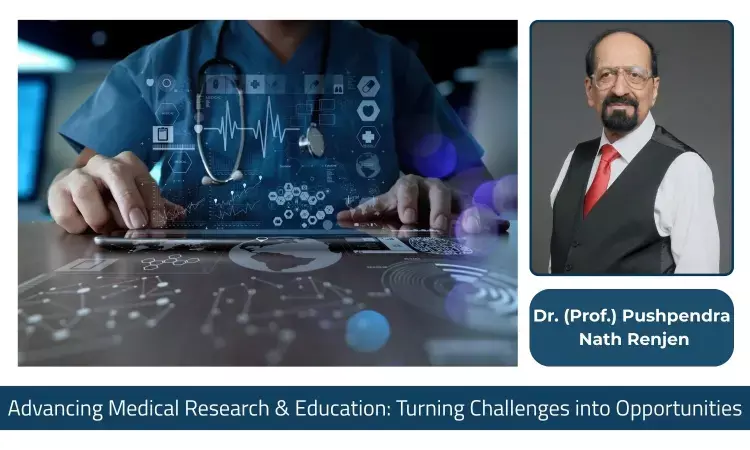- Home
- Medical news & Guidelines
- Anesthesiology
- Cardiology and CTVS
- Critical Care
- Dentistry
- Dermatology
- Diabetes and Endocrinology
- ENT
- Gastroenterology
- Medicine
- Nephrology
- Neurology
- Obstretics-Gynaecology
- Oncology
- Ophthalmology
- Orthopaedics
- Pediatrics-Neonatology
- Psychiatry
- Pulmonology
- Radiology
- Surgery
- Urology
- Laboratory Medicine
- Diet
- Nursing
- Paramedical
- Physiotherapy
- Health news
- Fact Check
- Bone Health Fact Check
- Brain Health Fact Check
- Cancer Related Fact Check
- Child Care Fact Check
- Dental and oral health fact check
- Diabetes and metabolic health fact check
- Diet and Nutrition Fact Check
- Eye and ENT Care Fact Check
- Fitness fact check
- Gut health fact check
- Heart health fact check
- Kidney health fact check
- Medical education fact check
- Men's health fact check
- Respiratory fact check
- Skin and hair care fact check
- Vaccine and Immunization fact check
- Women's health fact check
- AYUSH
- State News
- Andaman and Nicobar Islands
- Andhra Pradesh
- Arunachal Pradesh
- Assam
- Bihar
- Chandigarh
- Chattisgarh
- Dadra and Nagar Haveli
- Daman and Diu
- Delhi
- Goa
- Gujarat
- Haryana
- Himachal Pradesh
- Jammu & Kashmir
- Jharkhand
- Karnataka
- Kerala
- Ladakh
- Lakshadweep
- Madhya Pradesh
- Maharashtra
- Manipur
- Meghalaya
- Mizoram
- Nagaland
- Odisha
- Puducherry
- Punjab
- Rajasthan
- Sikkim
- Tamil Nadu
- Telangana
- Tripura
- Uttar Pradesh
- Uttrakhand
- West Bengal
- Medical Education
- Industry
Advancing Medical Research and Education in India: Turning Challenges into Opportunities - Prof Dr Pushpendra Nath Renjen

India is at a turning point in healthcare. With the world’s largest population, a wide spectrum of diseases, and rapidly improving infrastructure, the country has a rare opportunity to become a global hub for medical research and education. But to get there, we must first recognize the gaps and then work together to bridge them.
Where We Stand Today
Over the last two decades, India has made big strides—new medical colleges, digital health platforms, and reforms through the National Medical Commission (NMC) have reshaped medical education. Research publications are on the rise too. Yet, challenges remain. Much of the research is concentrated in a handful of institutions, funding is inadequate, and for many students, research feels like an academic obligation rather than a genuine pursuit of discovery.
The Roadblocks
- Funding & Infrastructure: Many medical colleges lack modern labs, biobanks, and digital tools.
- Training: Young doctors often receive little exposure to research design, statistics, or critical appraisal.
- Collaboration Gaps: Medicine, technology, and public health often work in isolation, missing out on the benefits of synergy.
- Brain Drain: Talented clinician-researchers move abroad for better opportunities, weakening India’s research ecosystem.
- Regulatory Hurdles: Lengthy and inconsistent approval processes can discourage clinical trials.
How We Can Move Forward
- The good news is that solutions are within reach: Invest more, invest smartly: Create well-equipped labs and research centers not just in metros but also in tier-2 and rural areas.
- Make research part of education: Teach students research methodology and evidence-based medicine early, and create clinician-scientist tracks.
- Encourage collaboration: Bring together doctors, engineers, data scientists, and policymakers to work on problems like diabetes, stroke, and cancer. Streamline approvals: A transparent and efficient regulatory process will attract more high-quality trials.
- Nurture and retain talent: Offer fellowships, protected time for research, and recognition to make research a viable and rewarding career.
Why It Matters
India’s unique health challenges—such as a rising burden of non-communicable diseases alongside infectious diseases—mean that the world has much to learn from research conducted here. Imagine using AI-driven tools to detect stroke early in rural areas, or genetic studies tailored to the Indian population to guide personalized medicine. These aren’t distant dreams—they are possibilities if we commit to advancing medical research today.
Conclusion
Medical research and education are not just academic pursuits; they are tools to save lives, strengthen healthcare delivery, and shape public policy. By embedding research into our medical system and supporting innovation, India can transform its challenges into opportunities—and step onto the global stage as a leader in healthcare innovation.
Disclaimer: The views expressed in this article are of the author and not of Medical Dialogues. The Editorial/Content team of Medical Dialogues has not contributed to the writing/editing/packaging of this article.
Dr. (Prof.) Pushpendra Nath Renjen, DM Neurology is a Senior Consultant Neurologist with over 40 years of clinical and academic excellence. A distinguished Fellow of the Royal Colleges of Physicians of London, Edinburgh, Ireland, and Glasgow, he has published 150+ research papers, delivered 300+ CME lectures, and guided numerous DNB (Neurology) theses. Recognized with prestigious honors including the Lifetime Achievement Award from the Delhi Neurological Association and multiple awards from IMA and DMA, he continues to be a leading figure in neurology education, research, and practice.


